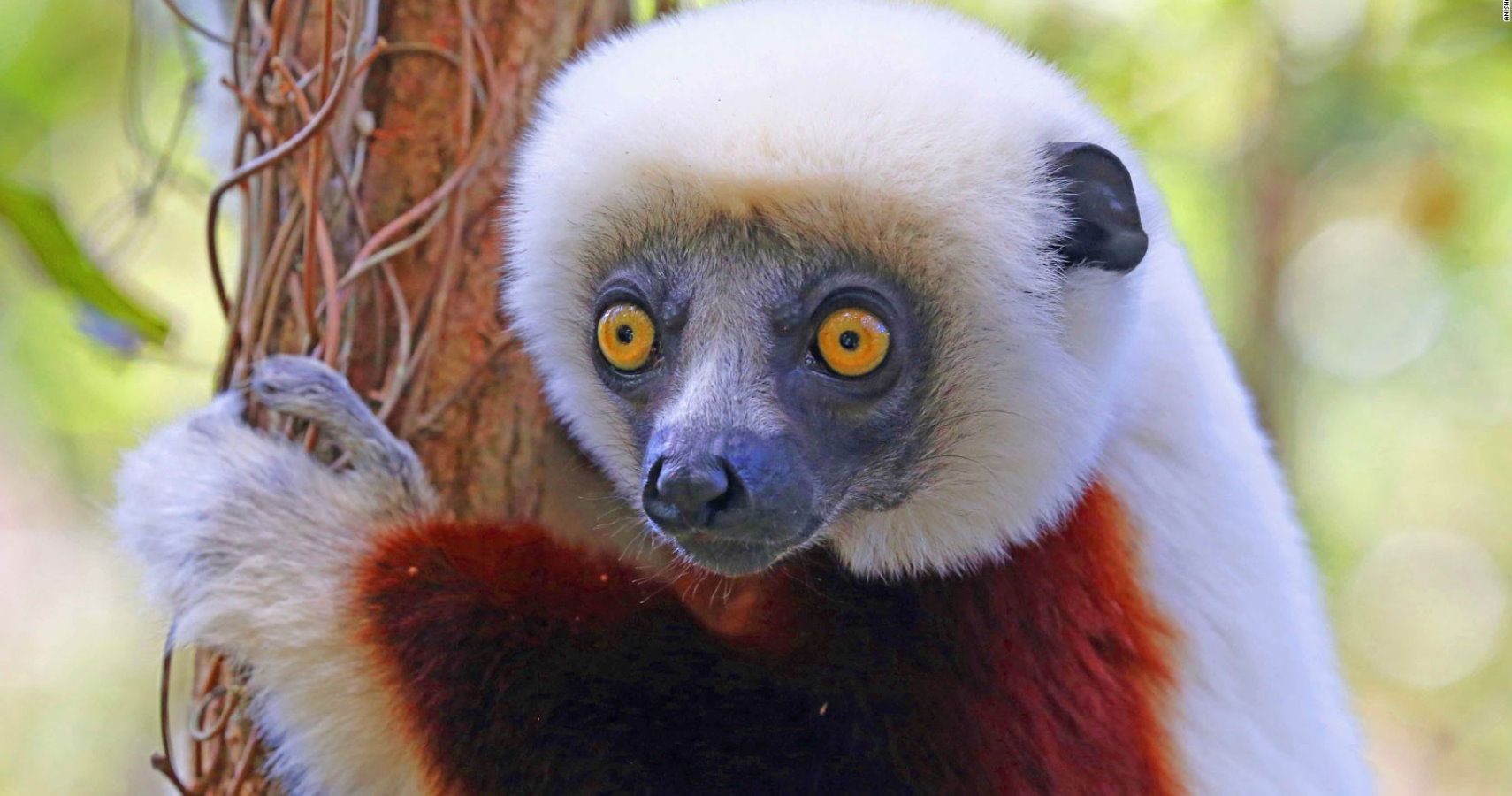A couple is saving lemurs and the environment by teaching Madagascar natives how to read.
This may come as a surprise, but the island nation of Madagascar is actually the fourth fastest-growing economy in the world. Exports include textiles, fish, and spices. A major component of the Madagascar economy is vanilla, with as much as 80% of the world's vanilla coming from the small African nation.
But Madagascar has a problem. Much of the country still live an agrarian lifestyle, meaning they derive their livelihoods from the land. They’re small-plot farmers in tiny, remote villages where the vast majority of residents can’t even read. With little education, they have no choice but to live the same lives as their parents and take over the family farm.
And this is causing trouble for Madagascar’s wildlife, namely, the lemurs. Lemurs are a critically endangered species. Most of their habitat has been destroyed by human encroachment, and without a home, the lemurs are dying off.
One couple realized that they could address both the economic issue and the environmental one at the same time by teaching the indigenous Malagasy people how to read.
On their 2014 honeymoon, Shana and Vlad Vassilieva went to Madagascar where they and their tour guide JJ (Jean-Jacques Rafenomahazomanana) went off the beaten path to visit some of Madagascar’s remote villages. Shana and Vlad discovered that it was literacy that was both keeping these people from achieving higher-paying jobs and killing the lemurs.
To solve that issue, they started the Mobile Library Project, designed to help bring literacy to the Malagasy people. The project is all done out of the back of a van equipped with solar panels and as many books as it can contain, with subjects ranging from basic math and language skills, to more useful topics like how to improve farm yields.
With the help of government grants and in coordination with the local school system, the Mobile Library Project has brought literacy to 6,200 people. They've also started a "tree and seed" sharing program that has planted 80 trees at 14 schools and distributed 66 pounds of seeds to 46 families.
Today, the Mobile Library Project continues to improve the lives of the Malagasy and help save lemurs at the same time.
Source: The Mobile Library Project on Facebook, Good News Network

